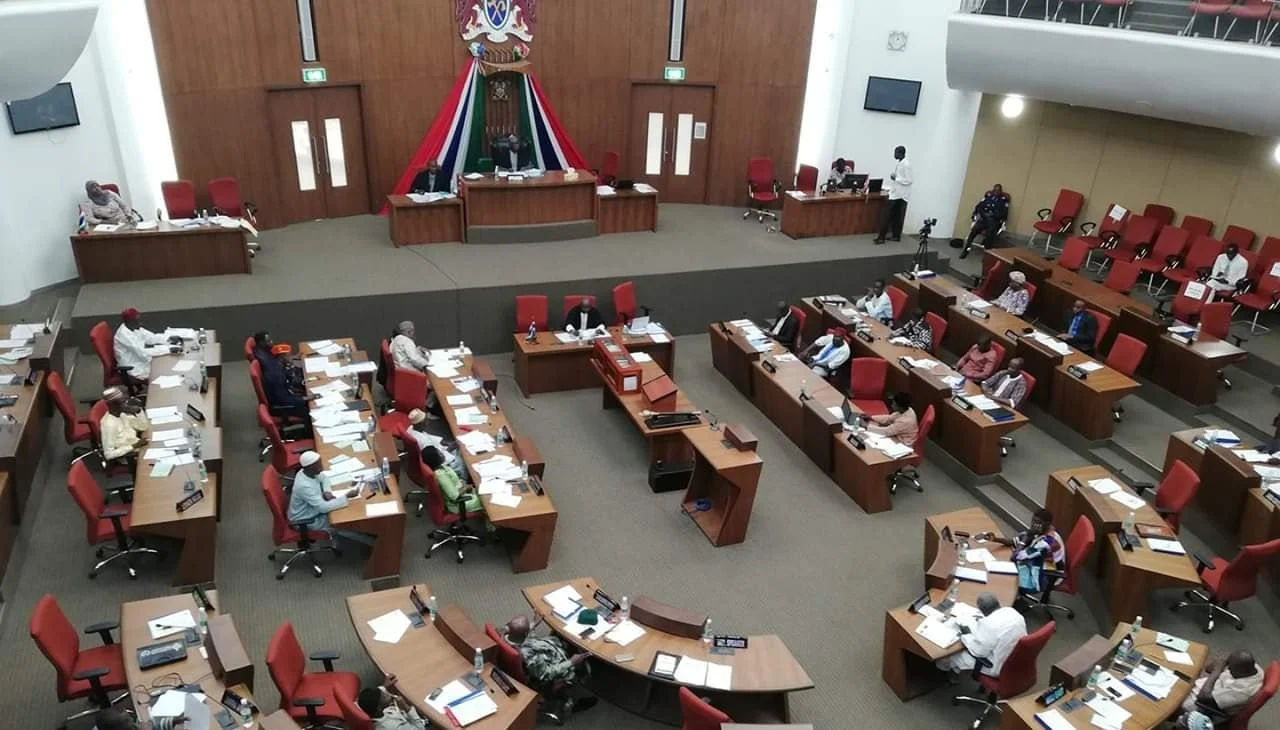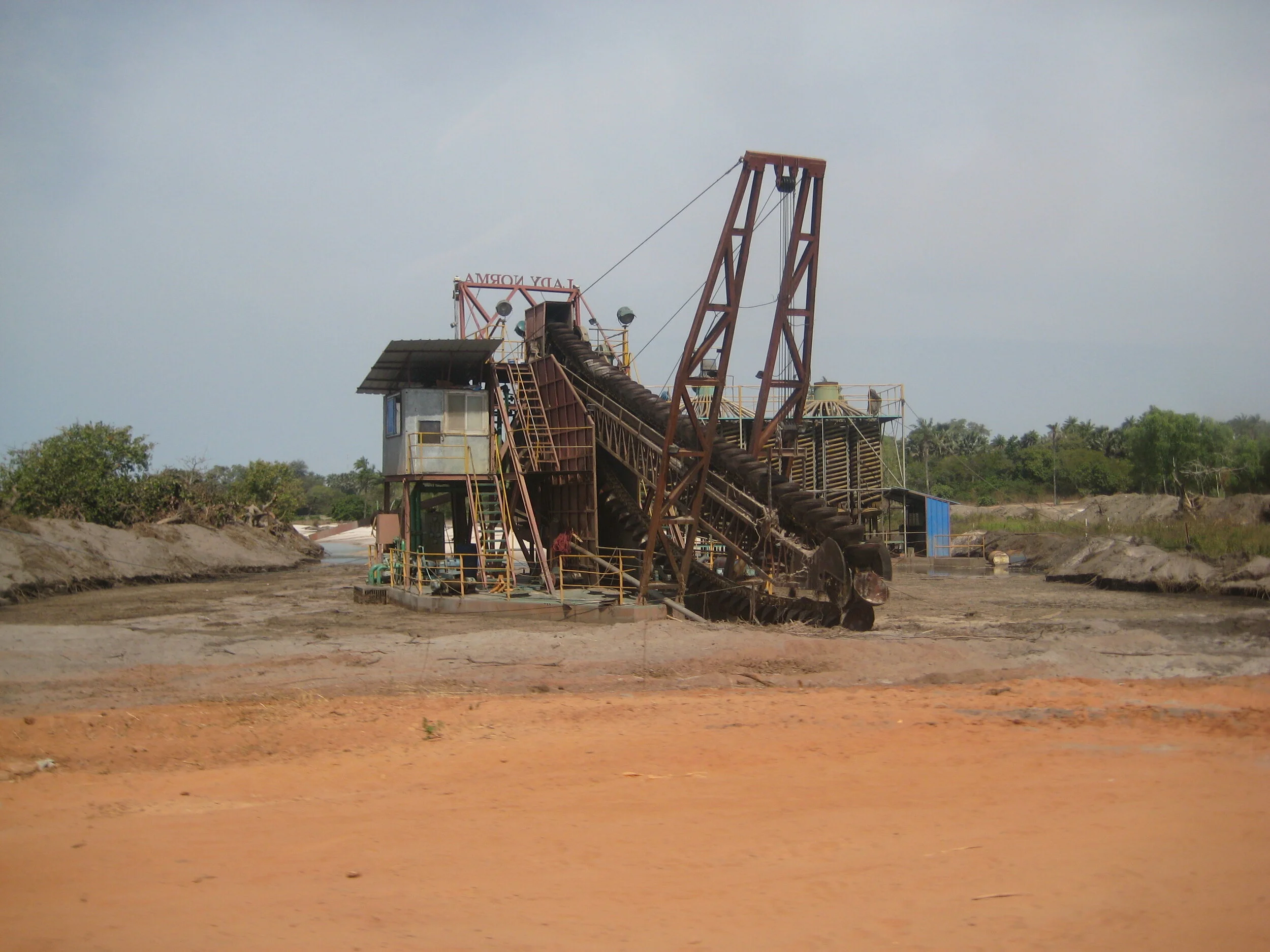(Photo Credit: HRW)
As a member of the United Nations and a party to the United Nations Covenant on Civil and Political Rights (ICCPR), the Gambia has registered both positive and negative developments in guaranteeing the right to freedom of expression. This essay highlights the Gambia’s human rights situation in respect to the right to freedom of expression which over the years has been affected in many ways. It is essential for the government to take giant steps in protecting the fundamental rights and liberties of its citizens. It is also of high importance that Non-Governmental Organizations (NGOs) take a leading role in promoting the rights and liberties of people as may be in line with their mandate.
Developments in relation freedom of expression
It is noteworthy to state that the Gambia had indeed gained a bad reputation on its human rights situation under the former government of Yahya Jammeh. Jammeh’s 22 years of military turned civilian style dictatorship in the Gambia was marked by several unfathomable human rights violations including but not limited to arrests and detentions without giving due regard to the constitution. Such attracted an international attention for 22 years, making the Gambia hell for journalists as well as members of the intellectual fraternity. The media under his administration has suffered regular, systematic and repressive attacks.
In the aftermath of the December polls which saw the ‘surprising’ defeat of Jammeh by an opposition coalition of seven political parties, and his subsequent refusal to step down triggering post-election political crisis, Gambian security agents closed three private radio stations near the capital, Banjul in the names of Teranga FM, Hill Top and Afri radio.
The government under Jammeh was blamed for its failure to abide by the provisions of the ICCPR in respect to guaranteeing fundamental human rights and liberties of its people including freedom of expression. Amnesty International showed its dissatisfaction with the then government when it failed on numerous occasions to submit reports on its human rights situation as a state party to the ICCPR. The government was said to have mounted “systematic attacks on freedom of expression and of the press, harassment of human rights defenders and journalists, long term detention without trial of political detainees…”(Amnesty International)
To muzzle the press, media laws have been passed which restricts media freedom including freedom of expression. Since 2013, the Jammeh administration enacted series of repressive laws that curtail freedom of expression and the media with a new law increasing penalties for “providing false information” and the other criminalizes anyone using the internet to spread “false news” about the government or civil servants. This particular amendment to the Criminal Code increased the prison term from six months to five years and the fine from D500 ($12) to 50,000 ($1,226) for providing “false information” to a public servant which include the president, vice president, cabinet ministers and members of parliament. These according to Human Rights Watch, have restricted the proper functioning of Civil Society Organizations as well the media, serving as threats to freedom of expression.
Under the current dispensation, one may claim some improvements in respect of freedom of expression. Individuals can express their opinions without fear of victimization contrary to how it used to be under Jammeh. On the area of the media, few media houses have emerged adding to the existing ones since the change of government in 2016, including a television station which serves as the country’s second TV station since independence. However, the challenge remains that, some of the laws that hindered the right to freedom of expression under the previous administration are still in place. The Gambia Press Union continues to challenge the law on “false news” in an attempt to decriminalize it. The challenge over the case was first heard during the era of the former government but without any proper legal remedy; nevertheless, the press union continues to challenge it to this date. Even though the current government “conceded on the unconstitutionality of libel, criminal defamation and sedition, but has maintained that false news places “reasonable restriction necessary in a democracy.”
Despite contesting the 2016 election on the promise for a new constitution that would wipe out all bad laws, especially those relating to freedom of expression, such laws are still in place and have attracted public outcry. However, the government through the justice ministry has passed the bill for a constitutional reform that is expected to fundamentally guarantee the right to freedom of expression. ‘Criminal justice sector and media law reform’ are considered to be priorities. According to Human Rights Watch 2017 Report on the Gambia, the government has largely respected media and opposition freedom and also further promised to repeal all laws that restrict the right to freedom of expression, including ‘false news’. Journalists who fled the country during the era of Jammeh after being arrested and tortured have returned while the Barrow administration promised to comply with judgments of the ECOWAS Community Court against The Gambia in relation to the forced disappearance of two journalists, torture of another, to negotiate in compensating the families of the victims.
However, even though the country has registered some positive developments, challenges remain as well as mentioned earlier. In August 2017, opposition leader, Mamma Kandeh was invited for questioning by the police ‘in connection with allegations he made against the coalition government of pocketing loans that it secured from foreign financial institutions.”
Two months later, leader of another opposition party, APRC, the party of the former president was called for questioning by the police in connection to statements he made accusing the coalition government of victimizing certain individuals who are supporters of his party. In late January, the party’s spokesperson, Seedy Njie was also arrested and questioned by the police in relation to a comment he made regarding the release of a party supporter in detention.
In January 2018, a university lecturer was detained and questioned by the police in respect of a newspaper comment he made on the country’s security situation. The arrest and detention of Dr Ismaila Ceesay attracted widespread condemnation both locally and internationally including the Institute for Human Rights and Development in Africa (IHRDA), which subsequently led to his release by the authorities.
Despite gains been made in its human rights situation in relation to freedom of expression, the current government still have more work to do in fully protecting and safeguarding such a fundamental right and freedom.
References
Edward McAllister, Reuters 8th January 2017, “Gambian Authorities Shut three radio stations amid post-election crisis”
Amnesty International Press release 3rd February 2002, “Gambia: missed opportunity to promote human rights”
World Report 2017, Human Rights Watch, “Gambia: Events of 2016”
The Standard Newspaper, 23 November 2017, “GPU Continues battle to decriminalize false news”
News24 8th February 2017, “Gambia to boost press freedom in constitution overhaul”
World Report 2018, Human Rights Watch, “Gambia: Events of 2017”
The Daily Observer 11 August 2017, All Africa, “Gambia: Police Question Mamma Kandeh”
World News 1 February 2018 “Institute for Human Rights and Development in Africa Condemns ‘Unlawful’ Arrest of Dr Ceesay”
About the Author:
Essa holds a BSc in Political Science from the UTG, and serves as a Graduate/Teaching Assistant in the Political Science Unit. He is currently pursuing MPhil in Human Rights and Democratization in Africa at the Centre for Human Right, University of Pretoria, South Africa. He has an interest in promoting the civil and political rights of all people, especially in Africa. His research interest lies in post-conflict democratization in Africa and how different institutional and constitutional designs can be utilized in peacemaking and peace-building processes in the continent.







